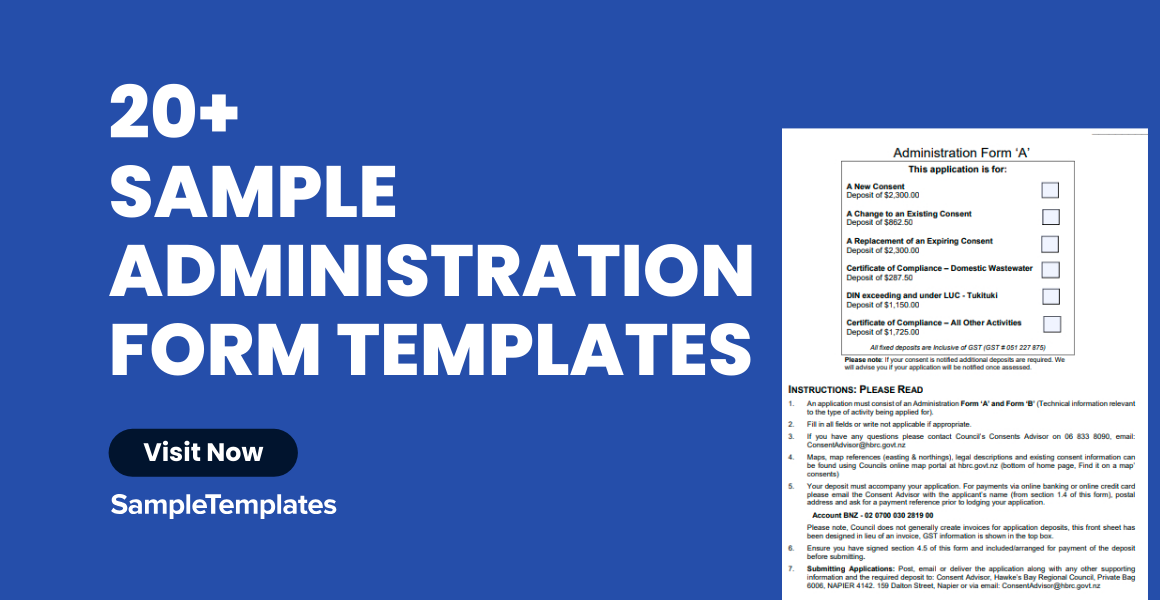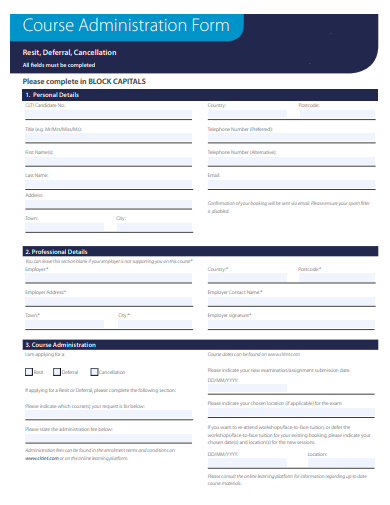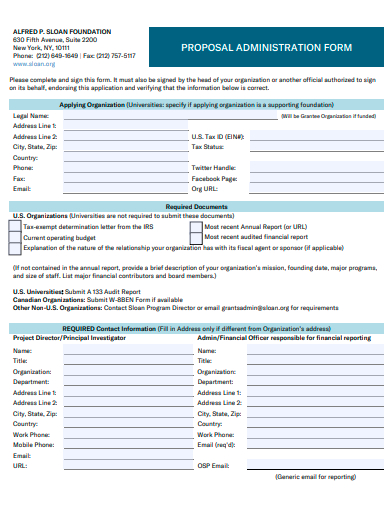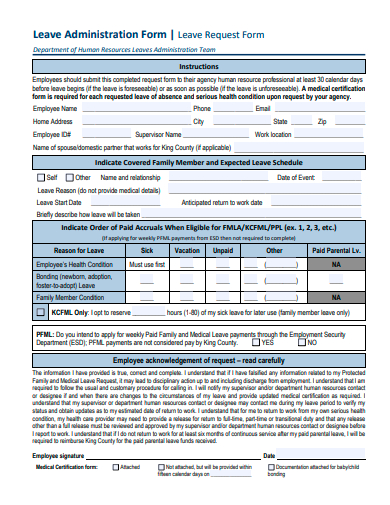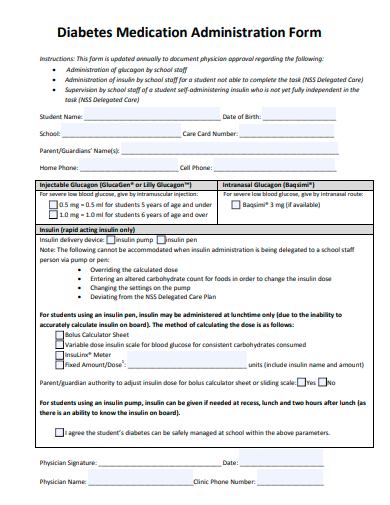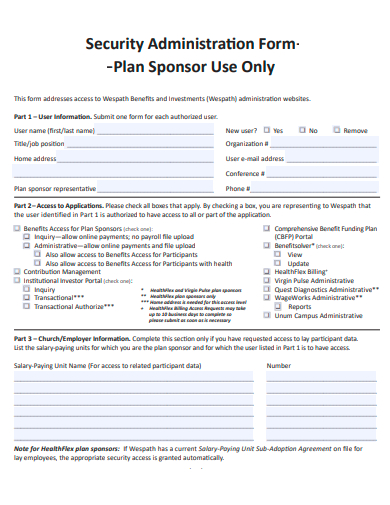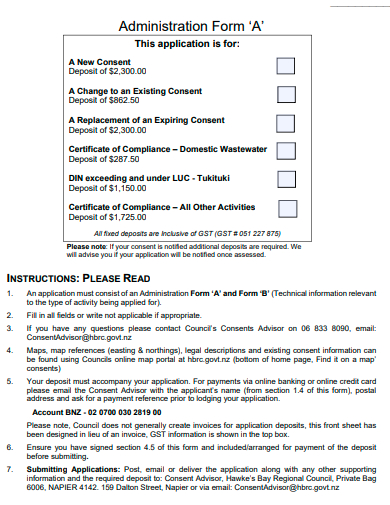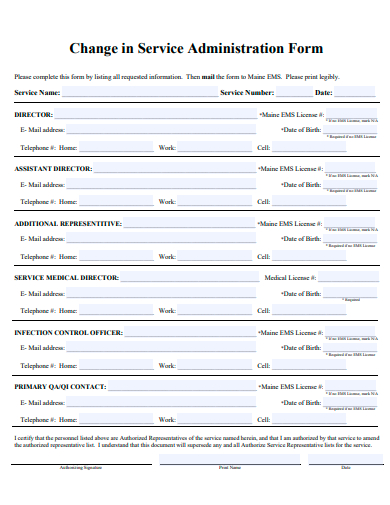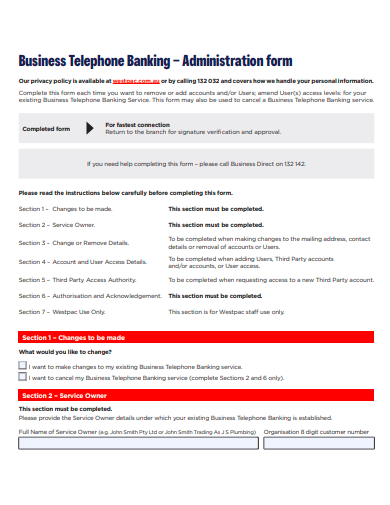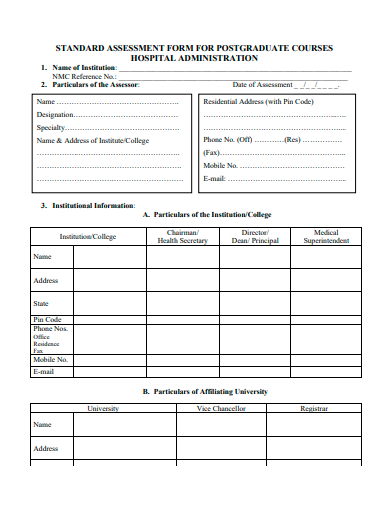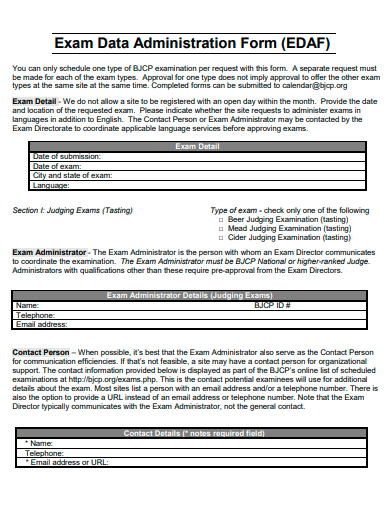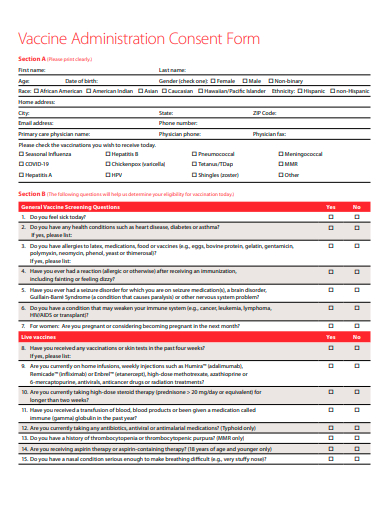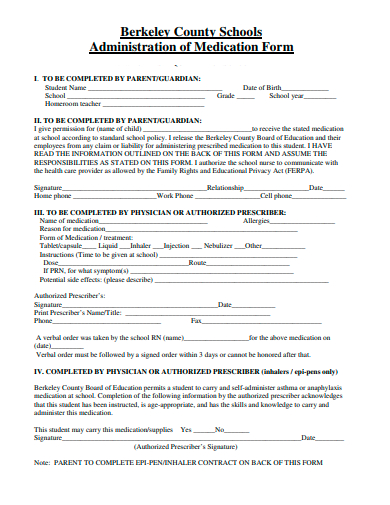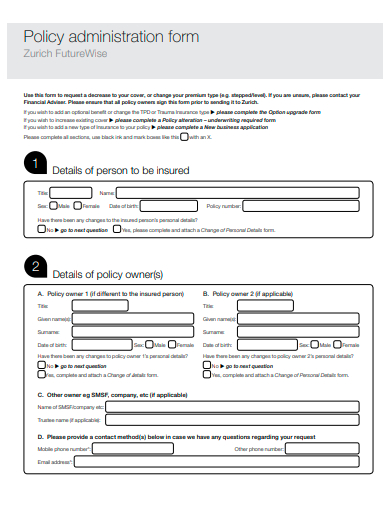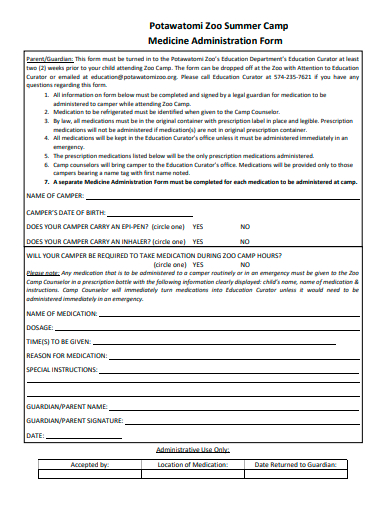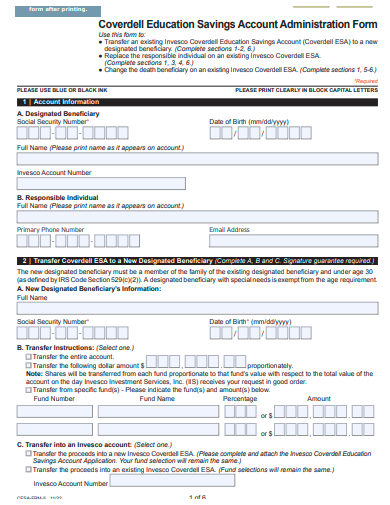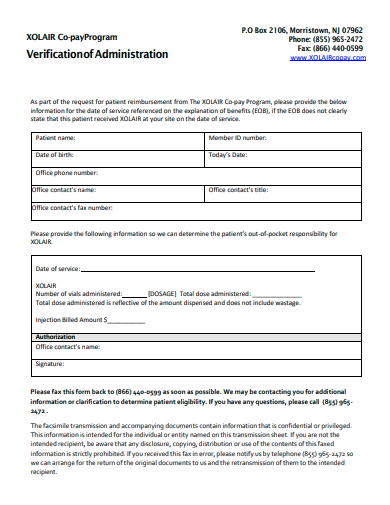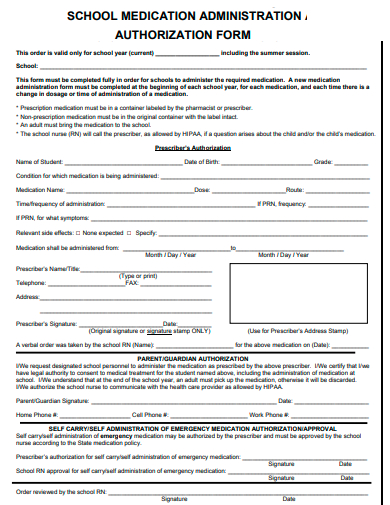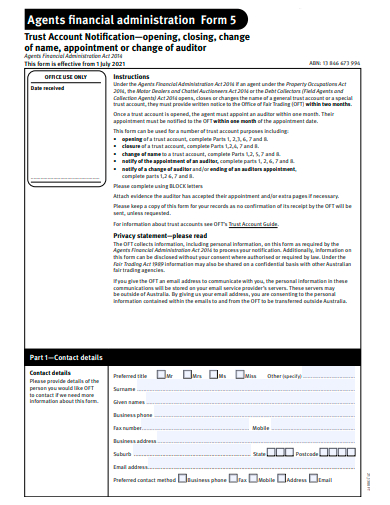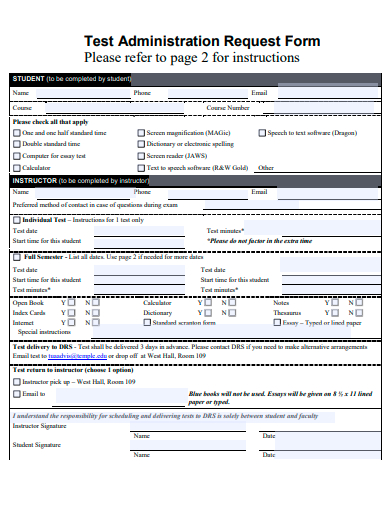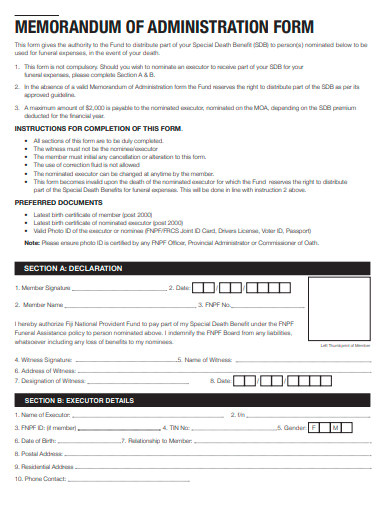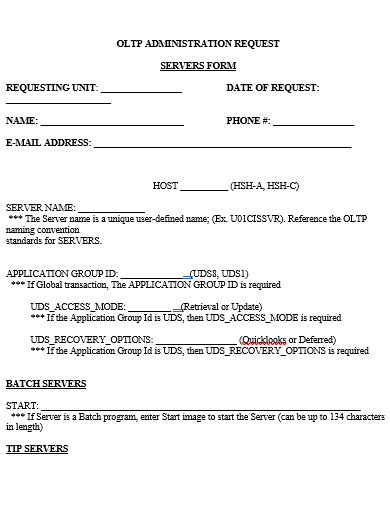Master the art of organized administration with our comprehensive Administration Form Template. Designed to streamline administrative tasks and bolster productivity, Form template is a must-have for businesses aiming for peak efficiency. Infused with best practices and user-friendly fields, it’s more than just a form it’s a game changer in documentation. Dive in, and let our template pave your path to administrative excellence.
20+ Administration Form Samples
1. Course Administration Form Template
2. Sample Proposal Administration Form Template
3. Leave Administration Form Template
4. Diabetes Medication Administration Form Template
5. Sample Security Administration Form Template
6. Administration Form Template
7. Change in Service Administration Form Template
8. Business Telephone Banking Administration Form Template
9. Sample Hospital Administration Form Template
10. Exam Data Administration Form Template
What is an administrative form?
An administrative form is a structured document or electronic template used to gather, organize, and process information within an organization. These forms play a pivotal role in ensuring that data is consistently captured, making it easier for organizations to maintain records, make decisions, and ensure compliance with various regulations.
Key Components of an Administrative Form
Typically, an administrative form will contain several fields designed to capture specific pieces of information. These fields can range from simple text boxes to more complex elements like drop-down menus, date pickers, or checkboxes. The design and complexity depend on the purpose of the form.
For instance, an administrative form for employee onboarding might collect details such as name, address, contact information, bank details, and more. Meanwhile, a form for inventory management might have fields related to product names, quantities, expiration dates, and supplier details.
Benefits of Using Administrative Forms
Using administrative forms can offer several advantages:
- Consistency: By standardizing the way information is collected, organizations ensure that data remains consistent across all departments or teams.
- Efficiency: Forms reduce the chances of oversight or missed details, ensuring that data collection is thorough and accurate.
- Compliance: Especially in industries that are heavily regulated, administrative forms ensure that all necessary data is captured and stored as per legal or organizational requirements.
- Ease of Data Analysis: When data is consistently formatted and organized, it becomes easier to analyze and extract insights from it.
Evolution with Technology
With the advent of digital transformation, many administrative forms have moved from paper-based formats to electronic forms. Digital or e-forms offer additional benefits such as instant data capture, easier storage and retrieval, automated data analysis, and seamless integration with other software or platforms.
Who needs an administration form?
Almost every business, regardless of its size or industry, will use some form of administrative forms. These entities rely on such forms for various functions, including human resources (employee onboarding, performance evaluations), finance (expense reports, invoice processing), and operations (inventory tracking, order processing).
Sole Proprietors and Freelancers
Even individuals running their own businesses or offering freelance services often need administrative forms. They might use them for client onboarding, project proposals, or tracking business expenses. Having structured forms helps them maintain a professional image and ensures they have all necessary information at hand.
Educational Institutions
Schools, colleges, and universities use administrative forms for a myriad of purposes, including student enrollment, course registration, feedback collection, and even for administrative functions like faculty hiring or resource allocation.
Medical and Healthcare Facilities
In the healthcare sector, administrative forms are indispensable. Patient intake forms, medical history records, insurance processing forms, and many other documents are vital for both patient care and the smooth operation of the facility.
Government Bodies and Non-profits
Government agencies and non-profit organizations also heavily rely on administrative forms. From citizen feedback and public surveys to applications for various services, administrative forms help these entities capture, organize, and process vast amounts of information efficiently.
The Everyday Individual
Beyond organizational needs, even individuals encounter administrative forms in their daily lives. Whether applying for a passport, opening a bank account, or even participating in a community event, forms make data collection systematic and efficient.
The use of administrative forms is universal, cutting across industries, sectors, and even personal versus professional spheres. Their adaptability and ability to bring order to information make them a mainstay in administrative processes worldwide. Whether paper-based or digital, their importance in ensuring smooth operations, compliance, and efficiency cannot be overstated.
11. Vaccine Administration Consent Form Template
12. Administration of Medication Form Template
13. Sample Policy Administration Form Template
14. Medicine Administration Form Template
15. Education Savings Account Administration Form Template
16. Sample Verification of Administration Form Template
17. School Medication Administration Authorization Form Template
18. Sample Agents Financial Administration Form Template
19. Test Administration Request Form Template
20. Memorandum of Administration Form Template
21. Administration Form in DOC
Types of Administration Forms to Know
Employee Onboarding and HR Forms
One of the most common categories, these forms are essential for businesses and organizations to process new hires. They can range from basic personal detail forms to more specific ones like tax deduction details, emergency contact forms, or benefit enrollment forms. Regular HR operations also use performance evaluation forms, leave application forms, and employee exit forms.
Inventory and Supply Chain Forms
For businesses involved in manufacturing, retail, or any form of product sales, inventory and supply chain forms are critical. These can include order forms, shipment tracking forms, supplier evaluation forms, and inventory count sheets.
Financial and Accounting Forms
These forms aid in tracking and managing the monetary aspects of a business. They include invoice forms, expense reports, reimbursement forms, and purchase orders. Other forms in this category might be related to financial audits, tax submissions, or budget approvals.
Medical and Patient Forms
Healthcare institutions, ranging from hospitals to private clinics, utilize a slew of forms. Patient intake forms, medical history forms, prescription forms, and insurance claim forms are just a few examples. These forms ensure patient data is accurately recorded, treatments are correctly administered, and billing processes are streamlined.
Educational and Academic Forms
Educational institutions manage vast amounts of data. Admission forms, course registration forms, feedback and evaluation forms for both students and teachers, and alumni engagement forms are commonly used. For research, there are also forms for study participation or grant applications.
Real Estate and Property Forms
Those in the real estate sector deal with property registration forms, tenant application forms, lease agreement forms, and property inspection forms. These forms are integral for ensuring all parties have clarity on terms, conditions, and responsibilities.
Legal and Compliance Forms
From affidavits to contracts, the legal sector is rife with administrative forms. There are also specific compliance forms that businesses might need to fill based on industry regulations, ensuring they adhere to all legal mandates.
Event and Program Registration Forms
For events, conferences, or any community programs, registration forms are a must. They capture participant details, preferences, payment information, and more. Feedback forms post-event also fall into this category, helping organizers gain insights for future improvements.
Government and Public Service Forms
These range from passport applications, driving license forms, and voter registration to public feedback forms or service request forms. Governments worldwide rely on these forms to serve their citizens and keep accurate records.
Research and Survey Forms
Companies conducting market research or academic institutions undertaking studies use these forms to gather data from participants. They’re structured to ensure consistency in responses and can be used both offline and online.
The vast array of administrative forms underscores their fundamental role in various sectors. Whether it’s for internal organizational processes, providing services to clients, or facilitating transactions, these forms ensure precision, clarity, and efficiency in administrative tasks. Understanding the type of form suited to a specific need is the first step in effective information management.
Related Posts
Sample Sworn Affidavit Forms
Vehicle Inspection Forms Samples & Templates
Sample Employee Advance Forms
Sample Child Travel Consent Forms
Sample Testimonial Request Forms
Sample Employee Details Forms
Sample Divorce Forms
Sample Attestation Forms
Employee Performance Appraisal Form Templates
FREE 9+ Sample Presentation Evaluation Forms in MS Word
FREE 10+ School Admission Form Samples & Templates in MS Word | PDF
FREE 30+ Patient Consent Form Samples in PDF | MS Word
FREE 10+ Sample Sign Off Form Templates in PDF | MS Word
FREE 11+ Sample Medical Consultation Forms in PDF | MS Word
FREE 8+ Sample Donation Forms in PDF | MS Word
